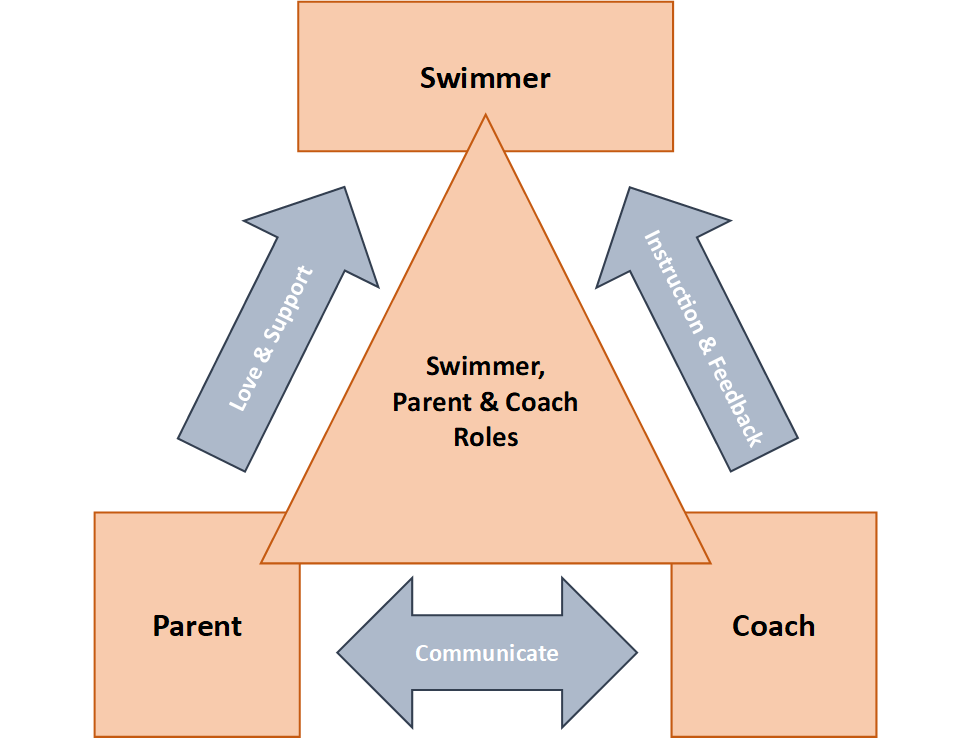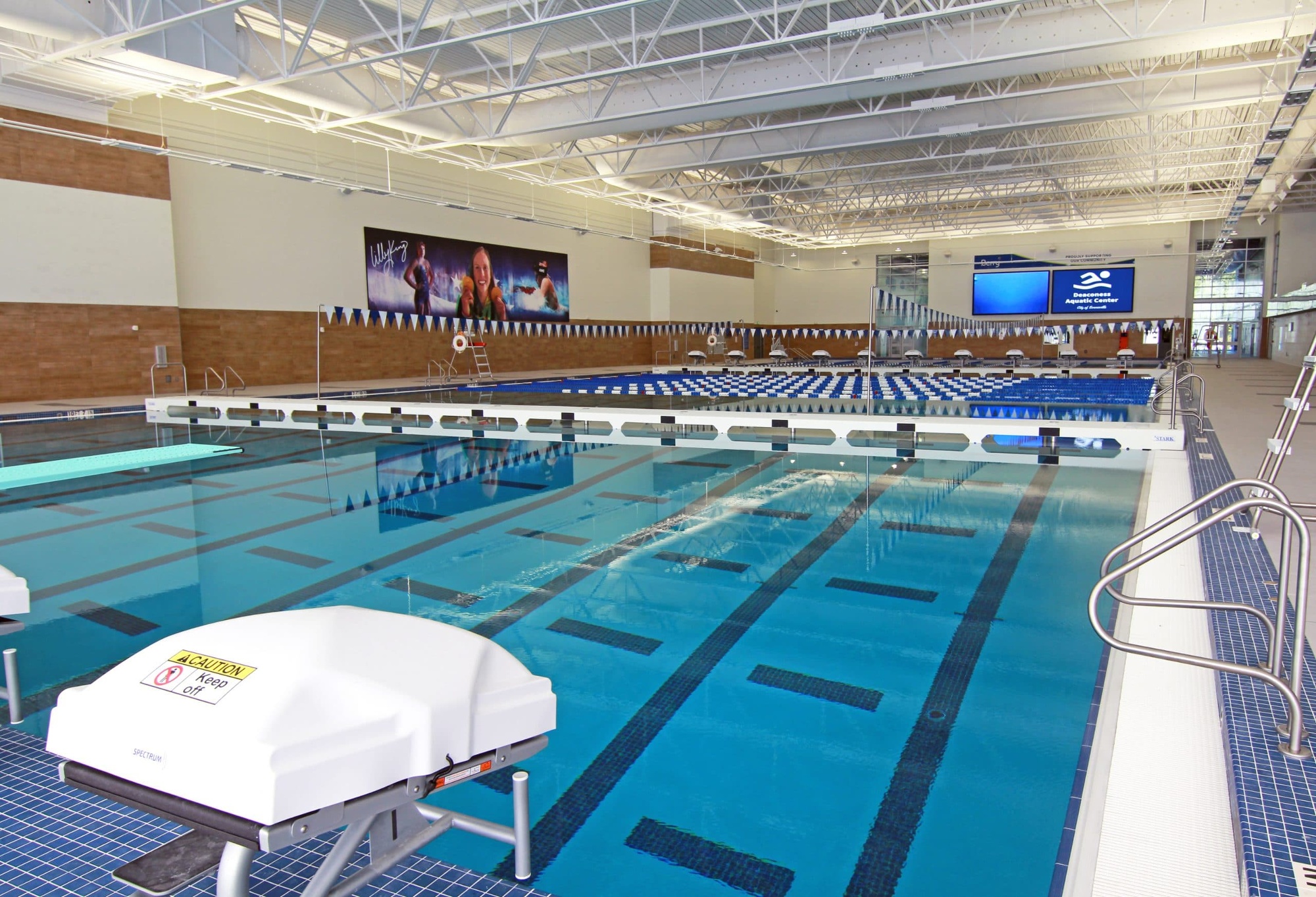Swimmer, Parent, & Coach Roles

The “triangular” relationship between the swimmer, parent and coach is paramount to the swimmer’s development and success. The triangle is symbolic of this relationship, with the swimmer being at the peak because they are trying to achieve their highest, desired level of success. The parents and coaches form the base of the triangle, and represent the support needed to help the swimmer reach their full potential. For the swimmer to have a rewarding experience, the connections between each must be strong, and the roles of each must be clear. The lines between each point need to be held as straight and true as possible. The triangle collapses when a swimmer, parent or coach fails to fulfill their role, or when one attempts, usually with good intentions, to take over the role of another.
Swimmer/Parent Roles
It is important for swimmers and parents to embrace being members of the team.
The best ways to do that include:
- Learn and understand the sport
- Learn and understand sports’ goals and lessons
- Practice team loyalty
- Know your role within the team and be involved
- Trust the coach
- Have fun and enjoy the experience
Swimmer/Coach Roles
It is important that the swimmer and coach follow these guidelines to establish a foundation of trust that will ultimately lead to the swimmer’s success.
Swimmers have a right to:
- Be treated with respect and to be free from verbal or physical abuse from another swimmer or coach
- Expect that all practices, both in and out of the water, will be conducted in a safe manner so that the swimmer will not be exposed to injury or unnecessary risk
- Expect that their coach will not ask the swimmer to perform or train in a manner that the coach knows will be harmful to the swimmer
- Be congratulated on a good performance, and be critiqued in a constructive manner when improvement in an area is needed
- Set their own swimming goals, and to change these goals as their circumstances change
- Know that his or her coach cares about them as a person as well as a swimmer
Coaches have a responsibility to:
- Develop a training program that allows for each swimmer to achieve their goals
- Provide direction and instruction to guide each swimmer’s improvement
- Determine training groups based on the swimmer's age and ability, and advance swimmers into the next group when it is in the best interest of the swimmer
- Select the events that the swimmer should enter, as well as select participants for any relay teams
- Conduct and supervise practices, warm-ups and meets for all swimmers
- Establish rules and regulations for the team
Parent/Coach Roles
It is important that parents and coaches are on the same page regarding the swimmer, and their training and performance. This cannot be done without proper communication.
What the parent wants the coach to know:
- Remember that my child is an individual with many interests and talents
- Know about kids and their development
- Know the sport of swimming
- Remember that winning isn’t everything
- Be a role model for my child
- Be organized and keep me informed well in advance
What the coach wants the parent to know:
- Encourage and support your child without pressuring
- Arrive on time, ready for practice and meets
- Remember your child is just one member of the TEAM
- Help out when asked
- Model good sportsmanship at all times
- Address your concerns appropriately




